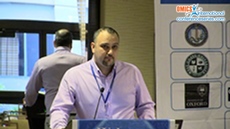
Hassan Athamneh & Ashraf Al-Rawashdeh
King Faisal Specialist Hospital & Research Center, Saudi Arabia
Title: Experience in restructuring of the rapid response team and implementation in pediatric hematology oncology outpatient area
Biography
Biography: Hassan Athamneh & Ashraf Al-Rawashdeh
Abstract
The health care organizations today have to be constantly on their toes to improve the health conditions of its patients and provide with holistic health care and treatment. Moreover, with the awareness among health care consumers and patient centered approach, the safety of patients has become one of the primary concerns of health care organization. Hence, it is the core responsibility of medical settings to provide with customer wellbeing and satisfaction at all levels, since failure to rescue the patients and recognizing deterioration of their health can immediately increase the mortality rate of the health care center. In the United States, the ‘100,000 lives campaign’ started the facilitation of Rapid Response Teams or RRT to ensure that the patients are safe and being provided with holistic approach of wellbeing through across all hospitals and medical centers. Th e Rapid Response Team was initially set up to ensure that hospitals maximize their service and ensure that their patients are safe. It also helps to reduce death rates in the medical centers and prevents cardiac arrests that usually occur aft er the symptoms of physiological deterioration. Th e system of RRT is a team based approach that supports the patients with the objective of instant attention and quick service to those patients who suff er from various clinical health deterioration conditions such as cardiac failure, hypotension, pulmonary edema, respiratory failure, diff erence in consciousness, sepsis and arrhythmias. With our hospital experience implementation, data reveals that this team based process has signifi cantly reduced mortality rates and transfer of patients to PICU department. Hence, various health care settings have decided to install the RRT system as it provides with great advantages to the hospitals. Th ese include: Increase in rescue incidents; less number of pediatrics codes outside critical care departments and limited unplanned transfer of patients to PICU.



